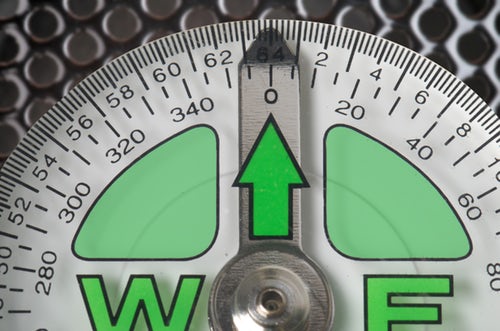Are you ready to tackle the process of ridding yourself of pesky defects?
If you read last Monday’s post, you saw the series of questions I asked to focus for this week.
How did you do answering last week’s questions?
Were you able to:
- Focus on your feelings, how you react emotionally to triggers or life events?
- Make literal or mental notes on your typical behavior—your autopilot fallback response to feelings and triggers?
- Identify whether your natural reaction is to yell, get angry, withdraw, self-harm, eat, avoid, give in, shame or shun?
As you can see from the list, our thoughts often determine our feelings and feelings determine our actions.
Training your brain to develop healthful habits—
I’m reading a great professional manual right now that delves into the reaction-changing process. It’s called Training Your Brain to Adopt Healthful Habits: Mastering the Five Brain Challenges. * Not only does it address habit changing, it addresses problems like addictions, eating disorders, and behavioral responses.
The sections have titles like:
“Learning to Highly Value Behaviors that Promote Wellness and Devalue Behaviors that Lead to Poor Health”
“Enriching Your Life to Tame the Need for Immediate Gratification”
“Enhancing Resiliency to New Threats and Chronic Stressors”
“Training Your Addiction Circuits to Make Healthy Behaviors Habitual”
“Making Flexible Decisions to Empower Your Brain to Make Healthful Choices”
If I were to give you a one-sentence overview of the book, I would say,
It’s all about being transformed by the renewing of your mind, so you do not let the world, or individuals, conform you. And it’s a secular book.
The Apostle Paul had it right when he said in Romans 12:2 that making your life the best life it can be—physically, emotionally and spiritually—starts with the renewing of your mind. Research supports his claims.
So what practical steps can we take to make that happen?
Think about a defect you have that’s causing you—and your life—trouble. You might want to start with something simple, so you can get some traction and success. That would give you the encouragement and momentum to move onto something more difficult.
But if it’s a serious addiction you need to confront, you would want to start there.
Steps to destroying your defects—
We’ll explore three of the six steps today.
-
Focus on one defect at a time!
So many of us run around in a whirlwind, multitasking even our “must improve in this area” behavior. That’s a recipe for disaster. A behavior we might do to sabotage ourselves into failure. Change is hard work. It takes time and focus. Repetition. Our brains aren’t happy when we’re multitasking; and none of us—regardless of what someone brags about—do it well.
Focus, focus, focus. Like a laser beam. On one defect at a time. And make sure that defect is put out of business before moving on to another one.
-
Focus on one defect change and one victory one day at a time!
Moment-by-moment, all of us need to take very thought—and behavior—captive to Christ, the One who created us and knows us intimately. Who better to go to for guidance and help than the One who created you?
This is where the concept of praying without ceasing also comes in, because when we’re hurting or struggling or sputtering along in life, sometimes it feels as though we’re weighed down by every—single—moment—of—every—day.
When life seems to be going well, we tend to slack off on the pray without ceasing admonition. We stand on the mountaintop, euphoric over what we’ve accomplished and conquered. Unfortunately, the descent into another valley can come fast and furiously. And then we wonder what happened, and we’re right back down in the dregs of life, clutching and clawing and moaning and groaning. Writhing around in our failures and pain.
Thankfully, God’s mercies are new every morning! So we can awaken each new day with the knowledge that we can re-boot. Focus, focus, focus and practice, practice, practice!
He won’t abandon us if we fall flat in our efforts; He knows our weaknesses, and He’s always available to give us the power and strength we need to succeed. To cover and protect us if we need rest.
But in order for that to happen, first we need to:
-
Focus on God’s power, not your own willpower to make those life corrections.
Certainly we can struggle and fight and wrestle with ourselves, but until we acknowledge that we can do nothing without Jesus, our efforts will usually be ineffective and short-lived.
This is the most fundamental and important step to take to enjoy lasting change and victory.
But what about them?
But what about other people that trigger poor responses and behavior from you, the ones you think need fixing?
You still need to concentrate on how you behavior in response to their behavior. And sometimes that means stepping away from a certain person or group that weakens your defenses and pushes your buttons.
Setting boundaries with others can be an important part of changing your defective behaviors and responses. Protecting your heart while you’re learning new coping and life skills. Like an alcoholic that needs to stop meeting drinking buddies at the local watering hole on a Friday night; or an alcoholic who needs to get new friends altogether, which is the usual scenario.
That’s not an easy or comfortable proposition, but it’s one you may have to take if you are to enjoy victory.
NEXT WEEK we’ll look at three additional steps to help you succeed in demolishing strongholds and self-defects.
Until then, focus on one defect, focus on one victory, and focus on God’s power—the ingredient that will make all of this happen for you!
Blessings,
Andrea
“Certainly there was an Eden….We all long for it, and we are constantly glimpsing it.” —J.R.R. Tolkien
* Authors:
- Jodie A Trafton, Ph.D.
- William P. Gordon, Ph.D.
- Supriya Misra, M.A.



